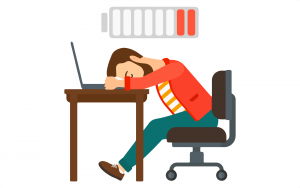26 Jul Feeling burnt out? Self-care tips to manage stress

By Sabrina Brient.
We live in a busy world, with work deadlines, personal commitments, and constant to-do lists. We can often get caught up in the “rat race” of life and not even know it. We finish a deadline or task and have many more to do next. We become tired, exhausted, emotional, and often get sick. And suddenly, without realising it, we are burnt out.
Whilst it would be preferable to focus on prevention, and not get to the stage of burnout we sometimes don’t even realise until we have it. And then it becomes important to focus on healing.
If you’re burnt out, you can begin to heal with these steps:
Give yourself time and space to recover.
It takes time for us to get to burnout level, so it is important to remember that it will take time to recover and heal from it. Let yourself have time without the pressure of being “fixed” or pushing yourself to be okay. During this time, it becomes important to say “no” to people, or things that are causing or continuing the burnout.
Spend time switching off and focusing on day-to-day self-care.
Give yourself permission to switch off from technology and “tasks” each day, to prioritise, and to focus on your daily needs. Allow yourself to prioritise your sleep, diet, exercise, and social connection over other activities that you might feel you should do but which might not be as important.
Actively focus on downtime and relaxation.
Sometimes when we think about how to improve or “fix” something, we have the urge to take action and do more. Alternatively, we might find that we are so tired and unmotivated that doing anything is hard. Try to listen to your body at these times to determine what you need. It is equally important to engage in downtime activities of rest as well as making a conscious effort to engage in positive activities that provide you with relaxation and self-care.
Be aware of your thoughts.
Burn out often comes from the pressure that we place on ourselves, and the focus we place on thoughts like “I should…” or “I have to…”. As you heal from burnout, its s important to be mindful of the unconscious statements that run through our head and make us feel emotions like guilt or shame. These are the statements that lead to us taking on more than we should or prioritising other things over self-care and wellbeing.
Show the compassion and kindness you would show a friend.
Sometimes we can be our own worst enemy. Our own unconscious statements can be self-critical and harsh. And yet, we are more naturally compassionate, non-judgmental, and validating when supporting those that we care about. When going through a difficult time or situation, imagine what you would say to a close friend or someone you love, and try to practice that same kindness to yourself.
Seek help when you need it.
We can often get to the stage of burnout because we find it difficult to ask for help or accept support. When healing from burnout, it becomes important to allow yourself to do both things. This can be through social support and connection with those around you or accessing more professional support such as your GP, or a psychologist or counsellor.
Burnout doesn’t go away on its own and if left untreated, can lead to illness, or decreased mental health and wellbeing. Healing from burnout takes time and might require small gentle changes, or even the consideration of some bigger changes like leaving a demanding or unfulfilling job. Take it slow and allow yourself to celebrate and be grateful for the small accomplishments you make on your journey of healing.
This blog was written by Sabrina Brient, to learn more about Sabrina’s experience, click here.
To book an appointment with Sabrina or one of our other Psychologists, click here.


Sorry, the comment form is closed at this time.